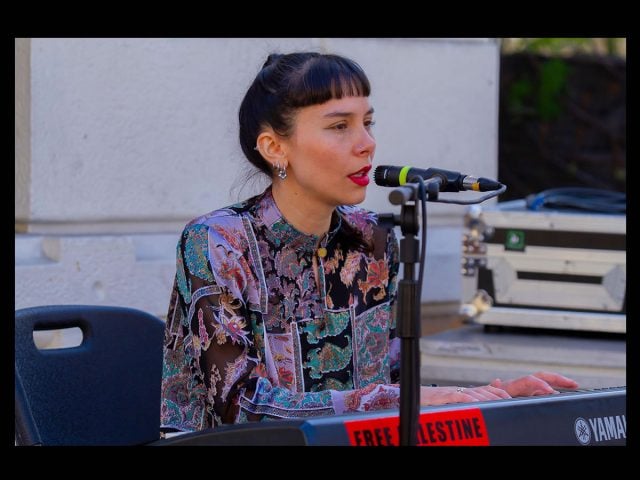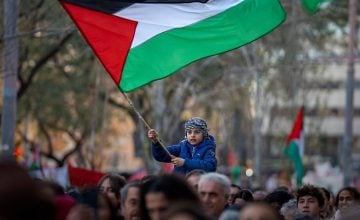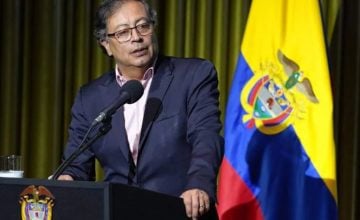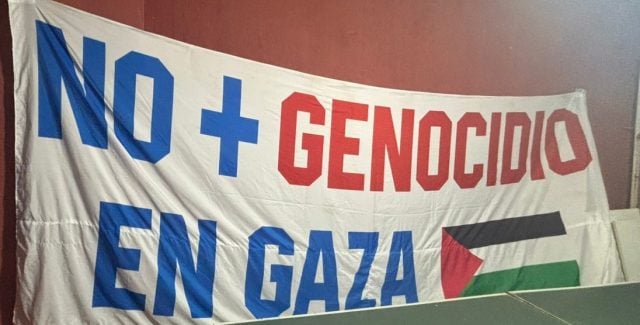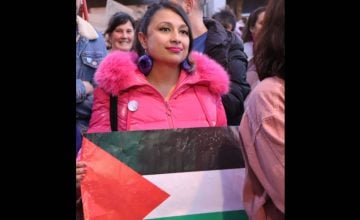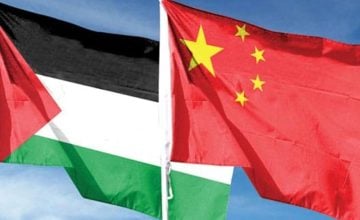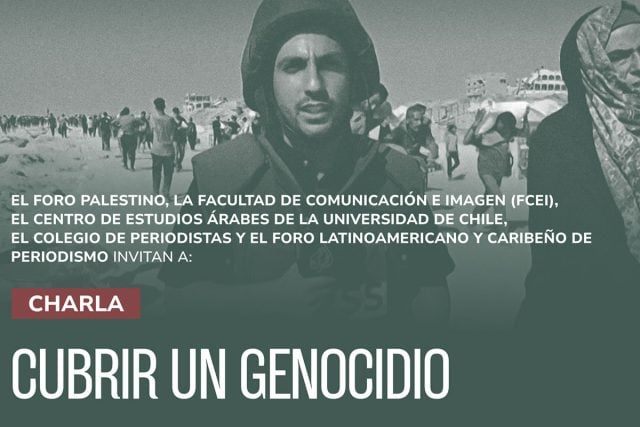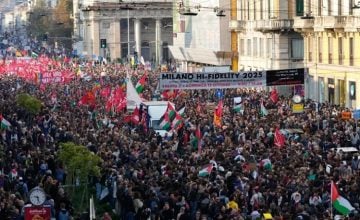Original article: Daniela Shejade lanza nuevo single: «La música es una forma de mantener viva a Palestina»
Chilean-Palestinian singer Daniela Shejade has unveiled her new song «On the Other Side of the World,» an emotive work that draws inspiration from the sorrow, empathy, and resilience of the Palestinian people in the face of genocide in Gaza. Her voice, weaving artistic sensitivity with political commitment, serves as a powerful tool to keep the memory of Palestine alive through art.
«For me, singing about Palestine is a way to raise awareness and reach people far removed from the events taking place there. Music is a universal language, and everyone can empathize with a cause when it is expressed through art. This helps connect individuals to certain injustices or social issues when they are sung or expressed in a sensitive manner,» the artist notes.
Having transitioned from classical piano, Shejade has infused political and emotional significance into her work. «I want to create music that has meaning and conveys a message; it doesn’t always have to be political; sometimes it can be sentimental or emotional, but it must connect with people. Palestine holds great importance in my life, and with each passing year, I feel more aligned with the Palestinian cause,» she explains.
From her early compositions, Palestine has been an integral part of her voice: «When I first began composing, one of the first songs I wrote was about Palestine. The second song I ever wrote was ‘They Said There Was No One,’ which sensitively addresses a deeply political issue. It refers to the colonial notion that Palestine was an empty land, when in reality, it was inhabited and full of life, families, and history—a land that was stolen.»
As time progressed, this connection evolved into her identity: «As I grew older, I began to forge that identity. Today, I truly see myself as a Chilean-Palestinian singer, and that brings with it a responsibility—to carry this message and ensure it reaches as many people as possible,» the singer asserts.
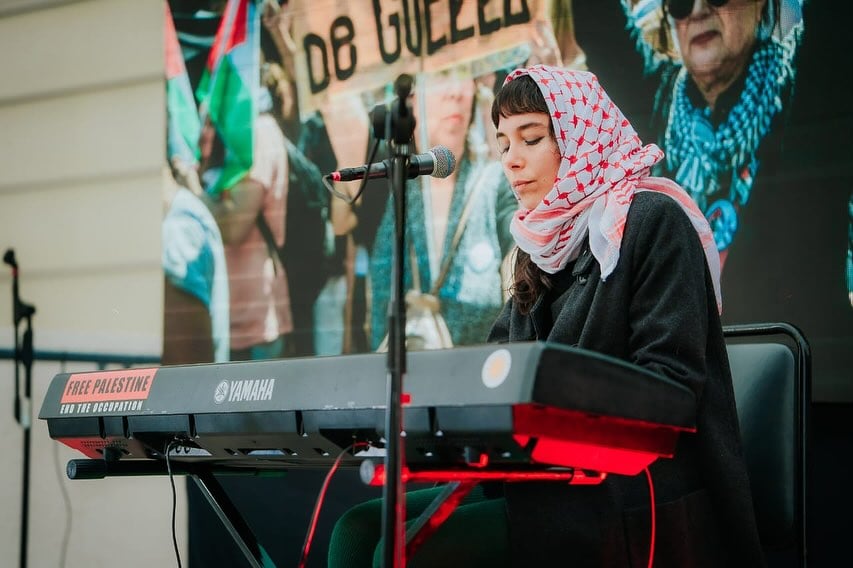
«There Will Always Be a Song About Palestine»
For Shejade, music plays a vital role in the Palestinian struggle. «Throughout history, in Palestine and the Arab world, music has been a means of protest. It is a tool of absolute resistance. Even when you see people in Gaza dying under bombardments, what persists—what becomes a form of escape and life—is making music.»
This commitment has translated into a clear decision: «I have resolved that with every new album I release, there will always be a song addressing Palestine because I feel it is the only way I can highlight what is happening there. It is my duty as an artist to convey this message.»
Resistance, she says, is also expressed in everyday gestures.
«People are living in terrible conditions, but you still see children singing on social media or individuals playing instruments among the rubble. That is profoundly impactful because it is also a way to resist and keep their culture alive,» asserts Shejade, who emphasizes how Arabic music preserves its cultural roots even in modern times.
«In the Arab world, regardless of the style, traditional instruments or unique scales are always preserved. Even if electronic music or rock is produced, that sonic identity remains. It is a form of cultural preservation and resistance.»
«In the face of Israel’s attempts to erase Palestine, music has been a means to keep it alive. It is impossible to eliminate Palestine if its culture remains so vibrant, and music is a fundamental part of that culture. In Palestine, children dream of becoming musicians or singers more than anything else. This highlights the immense value that art holds in our identity,» she affirms.
Reflection on Pain
Regarding her song «On the Other Side of the World,» Shejade shares that it emerged from reflections on pain and empathy.
«Someone once told me, ‘I have never felt so sad about something. I have never felt such deep pain; I feel it physically.’ And it wasn’t about Palestine. That made me wonder: what is it like to experience that physical pain, but of the heart? What do those living through the genocide in Gaza feel? If I can feel so much about something personal, what must be the pain of those who endure bombings every day?»
This reflection led to a song that does not aim to compare pains but to connect individual human suffering with the collective suffering of the Palestinian people.
For Shejade, the entirety of Palestinian culture is permeated by occupation. «After 80 years of living this way, it has become part of their being, their idiosyncrasy, their deepest identity. Every time they create art or culture, it shows, even if it is not explicitly political. Living under occupation and apartheid marks them so deeply that every cultural expression ends up infused with that reality, whether directly or indirectly.»
With «On the Other Side of the World,» Daniela Shejade reaffirms her commitment to the Palestinian cause and the power of art as a form of resistance. Her music not only evokes emotions: it resists, protests, and keeps alive the memory of a people determined not to disappear.
By Florencia Khamis, Editor of Content, Palestinian Information Center.-
El Ciudadano
